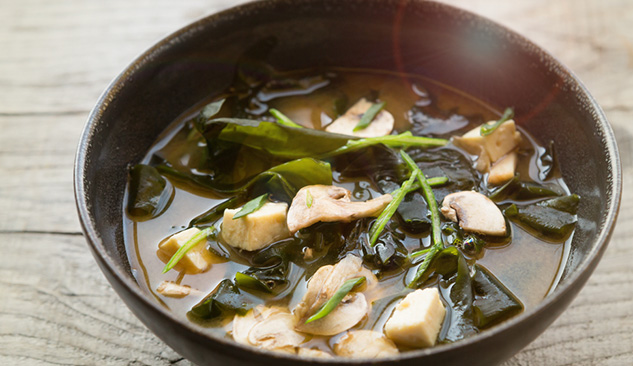What are Micronutrients?

The human body requires a wide variety of essential nutrients that promote good health and prevent disease. Are you getting enough micronutrients? Learn about the importance of micronutrients, plus a few easy ways to add them into your plant-based diet in our simple TREK guide below.
MACRONUTRIENTS AND MICRONUTRIENTS
You may have already read our blog post about Macronutrients, and now want to learn about micronutrients. Think minerals and vitamins and you’re halfway there! But, what’s the difference between macronutrients and micronutrients?
Macronutrients supply us with the necessary calories to move and function on a daily basis, whereas micronutrients are the “spark plugs” that help the body to use these calories.
Micronutrients are required in much smaller quantities than macronutrients – but this doesn’t mean they are any less important! All micronutrients are vital for normal energy, metabolism, and cellular function, as well as for your physical and mental well-being.
MICRONUTRIENTS EXAMPLES
Micronutrients include trace elements such as iron, copper, zinc, selenium and iodine. These micronutrients play an important role in maintaining good health and preventing disease. However, there are two main types of micronutrients:
1.Vitamins
Vitamins are nutrients that cannot be made by the body and need to be obtained from food sources such as fruit and vegetables. There are 13 vitamins needed by the body: A, C, D, E and K as well as B1 (thiamine), B2 (riboflavin), B3 (niacin), B5 (pantothenic acid), B6 (pyridoxine), B7 (biotin), B9 (folic acid), B12 (cobalamin) and biotin).
2. Minerals
Minerals are inorganic substances such as calcium, magnesium, sodium and potassium that keep your bones strong, regulate muscle function and help regulate blood pressure. Calcium is especially important for building strong teeth and bones; it also helps keep blood pressure under control. Iron plays a role in red blood cell production, helping to transport oxygen throughout the body via haemoglobin (the protein that makes up red blood cells).
MICRONUTRIENTS IN FOOD
One of the many benefits of a plant-based diet is its inherently high in micronutrients. That’s because plant foods are naturally rich in vitamins, minerals, and antioxidants. Whilst the mineral content of plants depends on the mineral content of the soil they’re nurtured in, as long the diet contains colourful vegetables, seeds, pulses, legumes and fruits, any plant-based eater should easily meet their micronutrient needs.
Having said that, you can add more micronutrients into your plant-based diet by…
1.EATING A VARIED DIET
You should try to eat a variety of foods in order to digest a range of nutrients. A colourful plate is most likely packed with micronutrients. By pairing colourful fruit or veg with micronutrient rich meals, you can transform an average diet into a super-healthy one.
The micronutrient challenges for vegans and plant-based enthusiasts happen when there is a lack of variety in the diet. Often this can come down to a perceived lack of time, which is the same reason why any diet can be nutritionally inadequate and imbalanced. Well-balanced and varied plant-rich diets can be extremely healthy, and they don’t have to be difficult!
The nutritional challenges that do crop up, mainly centre on getting adequate B12*, iron, protein and zinc, as well as iodine, B6, vitamin D, and calcium. However, with a varied diet of plenty of fresh veg, wholegrains, legumes, beans and pulses, seeds and nuts, getting adequate amounts of these nutrients should not be a problem.
2. ADDING VEGAN B12 SOURCES TO YOUR DIET
The B12 vitamin is crucial for many reasons. It is vital for cellular and nerve production and a severe deficiency can cause anaemia, leading to irreversible nerve damage, and cognitive impairment
Our intestinal bacteria/flora contributes some B12 production, but it is unknown whether this is absorbed into the body. Some plant-based foods may contain a little “active” B12, such as Japanese fermented miso, some wild mushrooms, nutritional yeast, chlorella and some edible algaes.
3.EATING MORE ALGAE
Research shows that edible forms of green and purple algae may contain bioavailable or true vitamin B12. The research from Japan found purple laver (an algae) contained five types of biologically active vitamin B12 compounds and coenzymes but this is only on a scale better for small mammals. We will have to wait a little longer to see if people can benefit from eating algae, but we will let you know once there is news on that front.
4. EATING FOODS WITH WATER SOLUBLE VITAMINS
There are lots of vegan foods that contain water soluble vitamins. This includes delicious citrus fruits, broccoli, avocados, peppers, grains and leafy grains. So why not make yourself a fresh salad the next time you are looking to add more micronutrients to your diet? That way you can enjoy a delicious meal whilst getting more vitamin B into your diet.
5.EATING FOODS WITH FAT SOLUBLE VITAMINS
Although a lot of dairy products contain fat soluble vitamins, there are also a lot of fruits and vegetables for vegans to get these important micronutrients into their diet. From sweet potato and carrots, to kale, spinach and other green vegetables, it’s important to have colourful food on the plate when making a nutritious, balanced meal.
There we have it. TREK’s guide to micronutrients and why they are important. They help promote the normal functioning of the body which is why it’s imperative to add micronutrient rich foods into your vegan diet.
For more information on nutrition, read our other TREK blogs such as High Protein Snacks, and TREK’s Guide to Muscle Foods. Or for the ultimate high protein snack buy a TREK bar today!





